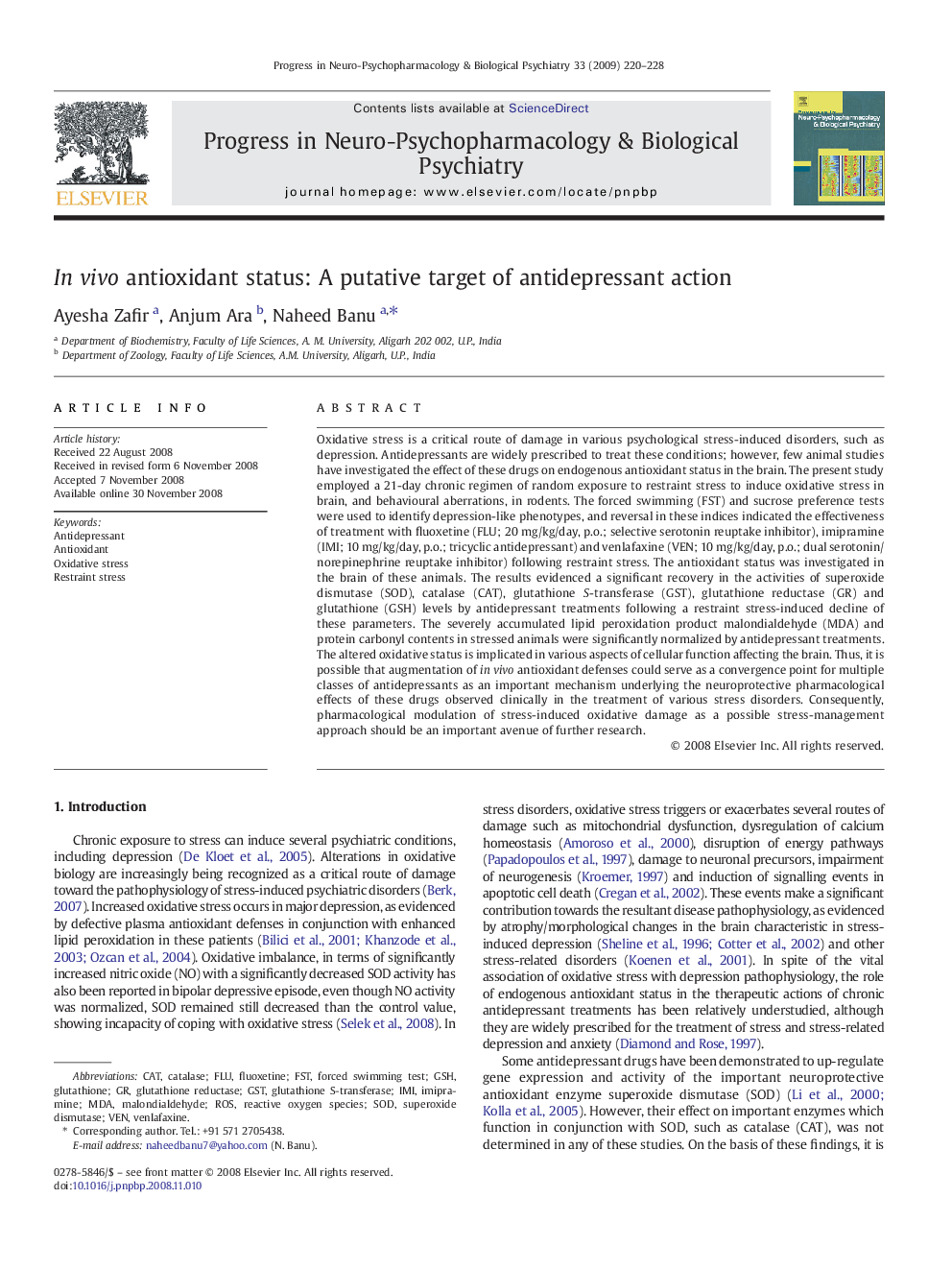| Article ID | Journal | Published Year | Pages | File Type |
|---|---|---|---|---|
| 2566398 | Progress in Neuro-Psychopharmacology and Biological Psychiatry | 2009 | 9 Pages |
Oxidative stress is a critical route of damage in various psychological stress-induced disorders, such as depression. Antidepressants are widely prescribed to treat these conditions; however, few animal studies have investigated the effect of these drugs on endogenous antioxidant status in the brain. The present study employed a 21-day chronic regimen of random exposure to restraint stress to induce oxidative stress in brain, and behavioural aberrations, in rodents. The forced swimming (FST) and sucrose preference tests were used to identify depression-like phenotypes, and reversal in these indices indicated the effectiveness of treatment with fluoxetine (FLU; 20 mg/kg/day, p.o.; selective serotonin reuptake inhibitor), imipramine (IMI; 10 mg/kg/day, p.o.; tricyclic antidepressant) and venlafaxine (VEN; 10 mg/kg/day, p.o.; dual serotonin/norepinephrine reuptake inhibitor) following restraint stress. The antioxidant status was investigated in the brain of these animals. The results evidenced a significant recovery in the activities of superoxide dismutase (SOD), catalase (CAT), glutathione S-transferase (GST), glutathione reductase (GR) and glutathione (GSH) levels by antidepressant treatments following a restraint stress-induced decline of these parameters. The severely accumulated lipid peroxidation product malondialdehyde (MDA) and protein carbonyl contents in stressed animals were significantly normalized by antidepressant treatments. The altered oxidative status is implicated in various aspects of cellular function affecting the brain. Thus, it is possible that augmentation of in vivo antioxidant defenses could serve as a convergence point for multiple classes of antidepressants as an important mechanism underlying the neuroprotective pharmacological effects of these drugs observed clinically in the treatment of various stress disorders. Consequently, pharmacological modulation of stress-induced oxidative damage as a possible stress-management approach should be an important avenue of further research.
